-
×
 The Book of YaReally
1 × 5,00 $
The Book of YaReally
1 × 5,00 $ -
×
 Formatting Print Books and eBooks Using Adobe InDesign - Mandi Lynn
1 × 23,00 $
Formatting Print Books and eBooks Using Adobe InDesign - Mandi Lynn
1 × 23,00 $ -
×
 The Blueprint Training 2020 with Ryan Stewart
1 × 5,00 $
The Blueprint Training 2020 with Ryan Stewart
1 × 5,00 $ -
×
 Phil Zimbardo on the Stanford Prison Experiment, Evil and Heroism
1 × 8,00 $
Phil Zimbardo on the Stanford Prison Experiment, Evil and Heroism
1 × 8,00 $ -
×
 Hypnotica Master’s Circle Deluxe Inner Circle Bundle with Eric Von Sydow
1 × 5,00 $
Hypnotica Master’s Circle Deluxe Inner Circle Bundle with Eric Von Sydow
1 × 5,00 $ -
×
 Rope Flow Beginners – 8-WEEKS TO FLUIDITY with Timothy Shieff
1 × 5,00 $
Rope Flow Beginners – 8-WEEKS TO FLUIDITY with Timothy Shieff
1 × 5,00 $ -
×
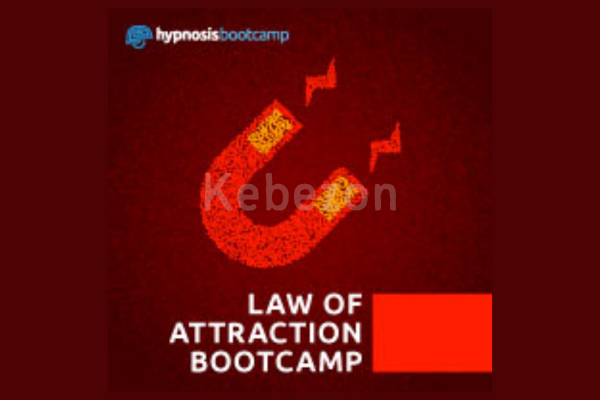 Law of Attraction Bootcamp with Hypnosis Bootcamp
1 × 39,00 $
Law of Attraction Bootcamp with Hypnosis Bootcamp
1 × 39,00 $ -
×
 Luminosity Masking in Photoshop with Blake Rudis
1 × 5,00 $
Luminosity Masking in Photoshop with Blake Rudis
1 × 5,00 $ -
×
 Sealfit 7 - Core Training with Sealfit
1 × 5,00 $
Sealfit 7 - Core Training with Sealfit
1 × 5,00 $ -
×
 The Sensual Hunter Method - Don Amante
1 × 5,00 $
The Sensual Hunter Method - Don Amante
1 × 5,00 $ -
×
 PayPal Ninja
1 × 5,00 $
PayPal Ninja
1 × 5,00 $ -
×
 The Art of Astral Projection 2023 with Jade Shaw - MindValley
1 × 5,00 $
The Art of Astral Projection 2023 with Jade Shaw - MindValley
1 × 5,00 $ -
×
 Safety Planning with Suicidal Clients with John Sommers-Flanagan
1 × 8,00 $
Safety Planning with Suicidal Clients with John Sommers-Flanagan
1 × 8,00 $ -
×
 The Power of Regret By Daniel Pink & Chase Jarvis
1 × 6,00 $
The Power of Regret By Daniel Pink & Chase Jarvis
1 × 6,00 $ -
×
 Memory (On-Demand) Licensed Instructor Course (TBLI) 24/7 with Marek Kasperski
1 × 241,00 $
Memory (On-Demand) Licensed Instructor Course (TBLI) 24/7 with Marek Kasperski
1 × 241,00 $ -
×
 Efficient Designer Masterclass with Alexunder Hess
1 × 5,00 $
Efficient Designer Masterclass with Alexunder Hess
1 × 5,00 $ -
×
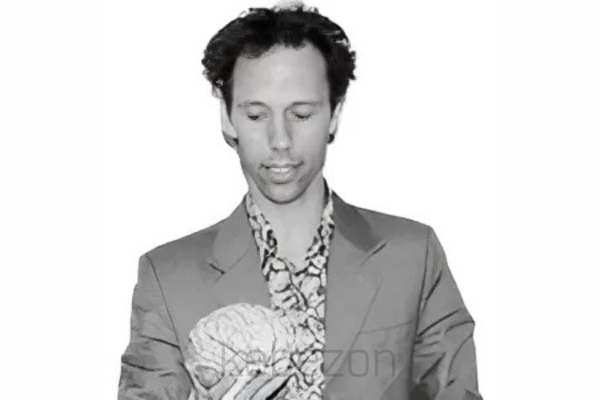 Decision Making and Emotions - Bart Shultz
1 × 39,00 $
Decision Making and Emotions - Bart Shultz
1 × 39,00 $ -
×
 Beginner's Guide To Working With 3D in Photoshop with Jesús Ramirez
1 × 5,00 $
Beginner's Guide To Working With 3D in Photoshop with Jesús Ramirez
1 × 5,00 $ -
×
 How To Chatgpt Plus, Prompt Engineering And Genai Course
1 × 5,00 $
How To Chatgpt Plus, Prompt Engineering And Genai Course
1 × 5,00 $ -
×
 Unit Economics for Ecommerce with Jeffrey Bantam
1 × 39,00 $
Unit Economics for Ecommerce with Jeffrey Bantam
1 × 39,00 $ -
×
 Kettlebells Strongfirst with Strong & Fit
1 × 5,00 $
Kettlebells Strongfirst with Strong & Fit
1 × 5,00 $ -
×
 Clipping Academy with Chris Record
1 × 5,00 $
Clipping Academy with Chris Record
1 × 5,00 $ -
×
 AI Client Goldmine with Offline Sharks
1 × 5,00 $
AI Client Goldmine with Offline Sharks
1 × 5,00 $ -
×
 How To Set Up Your Own SEO Agency From Home - 100% Fully Automated Business System - Uper Agency
1 × 5,00 $
How To Set Up Your Own SEO Agency From Home - 100% Fully Automated Business System - Uper Agency
1 × 5,00 $ -
×
 Perform Energy Clearings on Yourself & Other People - Jean Haner
1 × 39,00 $
Perform Energy Clearings on Yourself & Other People - Jean Haner
1 × 39,00 $ -
×
 Rolling Stones Artist Pack with Lick Library
1 × 5,00 $
Rolling Stones Artist Pack with Lick Library
1 × 5,00 $ -
×
 The Iodine Crisis: What You Don’t Know About Iodine Can Wreck Your Life (PDF+Mp3) with Lynne Farrow
1 × 6,00 $
The Iodine Crisis: What You Don’t Know About Iodine Can Wreck Your Life (PDF+Mp3) with Lynne Farrow
1 × 6,00 $ -
×
 Body Blaster Challenge Circuit Bundle - GMB
1 × 5,00 $
Body Blaster Challenge Circuit Bundle - GMB
1 × 5,00 $ -
×
 Character Design Fundamentals with Emma Gillette
1 × 46,00 $
Character Design Fundamentals with Emma Gillette
1 × 46,00 $ -
×
 How To Get Your Clients To Send You More Clients with Maria Wendt
1 × 5,00 $
How To Get Your Clients To Send You More Clients with Maria Wendt
1 × 5,00 $ -
×
 The Measurement Matrix with Chris Mercer
1 × 39,00 $
The Measurement Matrix with Chris Mercer
1 × 39,00 $ -
×
 Courses Collection with School of Motion
1 × 34,00 $
Courses Collection with School of Motion
1 × 34,00 $ -
×
 Matters of Size: The Ultimate Guide to Enlargement
1 × 5,00 $
Matters of Size: The Ultimate Guide to Enlargement
1 × 5,00 $ -
×
 TV Drama Software Add-On with John Truby
1 × 23,00 $
TV Drama Software Add-On with John Truby
1 × 23,00 $ -
×
 Building the Beast with John Meadows and Paul Carter
1 × 5,00 $
Building the Beast with John Meadows and Paul Carter
1 × 5,00 $ -
×
 Regeneration: Emotional and Mental Healing Subliminal by Subliminal Club
1 × 15,00 $
Regeneration: Emotional and Mental Healing Subliminal by Subliminal Club
1 × 15,00 $ -
×
 Evolution of Man Program: How To Finally Get In Touch With Your True And Stunningly Powerful Male Sexuality - Sean Messenger
1 × 5,00 $
Evolution of Man Program: How To Finally Get In Touch With Your True And Stunningly Powerful Male Sexuality - Sean Messenger
1 × 5,00 $ -
×
 The Online Entrepreneur Survival Guide with Stone River eLearning
1 × 6,00 $
The Online Entrepreneur Survival Guide with Stone River eLearning
1 × 6,00 $ -
×
 Godlike Masculinity: The Commander: Cultivate an Energetic and Physical Aura of Pure Status, Charisma and Power by Subliminal Club
1 × 15,00 $
Godlike Masculinity: The Commander: Cultivate an Energetic and Physical Aura of Pure Status, Charisma and Power by Subliminal Club
1 × 15,00 $ -
×
 MasteryOS 2.0 with Ross Harkness
1 × 5,00 $
MasteryOS 2.0 with Ross Harkness
1 × 5,00 $ -
×
 The COMPLETE Package - Advanced Occlusal Concepts, Manual Cranial, Chirodontics, plus FOSH-CARE #1 AND A Functional Aprroach to Sleep Disorders - Exceptional Courses
1 × 778,00 $
The COMPLETE Package - Advanced Occlusal Concepts, Manual Cranial, Chirodontics, plus FOSH-CARE #1 AND A Functional Aprroach to Sleep Disorders - Exceptional Courses
1 × 778,00 $
Motivational Interviewing in Juvenile Justice Settings With Ali Hall
8,00 $
SKU: KEB. 46698RySBmDxW
Category: Psychology
Tags: Ali Hall, Motivational Interviewing in Juvenile Justice Settings
Download Motivational Interviewing in Juvenile Justice Settings With Ali Hall, check content proof here:

Review of Motivational Interviewing in Juvenile Justice Settings with Ali Hall
The landscape of juvenile justice is transitioning, shifting from punitive measures towards more compassionate and supportive interventions that acknowledge the complex emotional and psychological needs of young individuals. Motivational Interviewing (MI), developed by William R. Miller and Stephen Rollnick, stands out as a beacon of hope in this evolution. This evidence-based communication approach is designed to enhance motivation for change, particularly in a setting where resistance and ambivalence are commonplace.
Through the insights and expertise of practitioners like Ali Hall, who has dedicated her career to training in MI, we can better understand its profound impact within the juvenile justice system. Hall highlights the indispensable role MI plays in fostering a strong therapeutic alliance, empowering youth, and ultimately facilitating a journey towards positive behavioral changes.
The Essence of Motivational Interviewing (MI)
Understanding MI: Principles and Applications
Motivational Interviewing is rooted in the belief that individuals possess the inherent capacity for change, but may struggle to recognize or act on that potential due to various psychological barriers. At its core, MI is a collaborative conversation rather than a directive approach, allowing adolescents to explore their own feelings about change. This method resonates deeply in juvenile justice settings, where many young individuals are wrestling with their circumstances.
The effectiveness of MI is supported by extensive empirical research, highlighting its ability to reduce resistance among adolescents. Specifically, studies indicate that when trained professionals use MI techniques, they can guide youth towards identifying their motivations for change. For instance, a study published in the Journal of Substance Abuse Treatment indicated a 30% increase in engagement levels among youth participating in MI-based interventions compared to traditional therapeutic approaches. This multifaceted application of MI extends beyond substance abuse to encompass mental health issues, thus broadening its relevance in diverse scenarios.
The Role of Ali Hall in MI Training
Ali Hall emerges as a pivotal figure in the MI community, actively contributing to the training and promotion of MI techniques. As a member of the Motivational Interviewing Network of Trainers (MINT), Hall has been instrumental in delivering numerous workshops and training sessions, particularly focusing on juvenile justice settings. Her emphasis on building a strong therapeutic alliance between staff and youth is notable; it’s akin to the bond between a sailor and their ship, essential for navigating turbulent waters.
Through her workshops, Hall teaches staff how to utilize MI techniques effectively, enhancing their communication skills and enabling productive conversations with adolescents. This training not only aids in managing resistance but also fosters cooperation, creating a space where youth feel safe to express their feelings and desires for change much like a warm campfire that draws people in on a chilly night. By instilling these tools, Hall empowers staff to facilitate conversations that help adolescents articulate their aspirations and lay down personal goals.
Hall’s insights underline the importance of empathy and respect in these interactions. She illustrates how MI can transform the staff-youth dynamic from one of authority to partnership, which is crucial for driving meaningful change. By fostering an environment of mutual respect, staff can combat the burnout and frustration that often accompany challenging interactions in juvenile justice contexts.
MI’s Impact on Juvenile Justice Outcomes
Enhancing Youth Empowerment and Responsibility
Implementing MI in juvenile justice settings can produce transformative outcomes. One of the defining features of this approach is its ability to enhance self-efficacy among adolescents. When youth are actively engaged in discussions about their behavior and motivation, they begin to assume responsibility for their choices a process likened to discovering one’s own compass after being lost at sea. Empowering youth in this manner is essential for long-term behavioral change and development.
A notable aspect of MI is its capacity to mitigate recidivism rates. Research underscores its effectiveness in supporting young individuals as they transition from detention back into their communities. A compelling study conducted by the Journal of Offender Rehabilitation revealed that youth who participated in MI programs demonstrated a 25% lower recidivism rate compared to those who did not receive MI intervention. This statistic not only highlights the program’s success but symbolizes hope for a generation often viewed through a lens of skepticism.
Moreover, MI aids in addressing the mental and behavioral health needs inherent within this demographic. With MI, young individuals are encouraged to seek and accept help, leading to ongoing support from mental health services. The method focuses on continuous follow-up, ensuring that youth do not fall back into patterns of neglect once they reintegrate into society; rather, they are equipped with the tools to create and maintain healthy lifestyles.
Reducing Staff Burnout and Frustration
Another significant benefit of integrating MI into juvenile justice settings is the reduction of burnout and frustration among staff. Working with adolescents who exhibit defiance and disengagement can be emotionally taxing, often leading to high turnover rates within these facilities. Hall’s training sessions equip staff with practical skills and techniques to communicate effectively, allowing them to navigate these challenging interactions.
Many practitioners within juvenile justice report feeling empowered and renewed after participating in MI training. They learn to approach youth with curiosity rather than judgment, transforming potential conflict into collaboration. This shift not only improves the overall environment of the facility but also fosters a stronger sense of community among staff members, contributing to a more positive workplace culture.
The transformation can be exemplified through case studies showcasing facilities that adopted MI methodologies. For instance, a youth correctional facility that implemented MI reported a 40% decrease in staff turnover rates within a year, as personnel felt more competent and supported in their roles. This outcome underscores the idea that when staff are equipped with effective communication strategies, they are far less likely to experience the emotional toll often associated with their positions.
Conclusion
In sum, the integration of Motivational Interviewing in juvenile justice settings represents a paradigm shift towards more empathetic and effective therapeutic practices. Ali Hall’s contributions and teachings continue to fuel this transformation, demonstrating how MI can empower youth, foster strong therapeutic alliances, and reduce staff burnout.
By focusing on collaborative solutions and supporting adolescents’ mental health needs, MI not only mitigates recidivism but also nurtures a generation capable of driving positive change in their lives. As we continue to uncover the depths of MI’s potential, it becomes clear that in the realm of juvenile justice, there is hope for healing, growth, and lasting transformation.
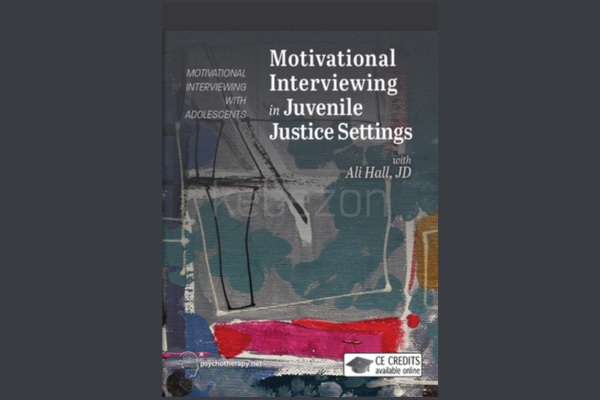
Frequently Asked Questions:
Business Model Innovation:
Embrace the concept of a legitimate business! Our strategy revolves around organizing group buys where participants collectively share the costs. The pooled funds are used to purchase popular courses, which we then offer to individuals with limited financial resources. While the authors of these courses might have concerns, our clients appreciate the affordability and accessibility we provide.
The Legal Landscape:
The legality of our activities is a gray area. Although we don’t have explicit permission from the course authors to resell the material, there’s a technical nuance involved. The course authors did not outline specific restrictions on resale when the courses were purchased. This legal nuance presents both an opportunity for us and a benefit for those seeking affordable access.
Quality Assurance: Addressing the Core Issue
When it comes to quality, purchasing a course directly from the sale page ensures that all materials and resources are identical to those obtained through traditional channels.
However, we set ourselves apart by offering more than just personal research and resale. It’s important to understand that we are not the official providers of these courses, which means that certain premium services are not included in our offering:
- There are no scheduled coaching calls or sessions with the author.
- Access to the author’s private Facebook group or web portal is not available.
- Membership in the author’s private forum is not included.
- There is no direct email support from the author or their team.
We operate independently with the aim of making courses more affordable by excluding the additional services offered through official channels. We greatly appreciate your understanding of our unique approach.
Be the first to review “Motivational Interviewing in Juvenile Justice Settings With Ali Hall” Cancel reply
You must be logged in to post a review.
Related products
Psychology



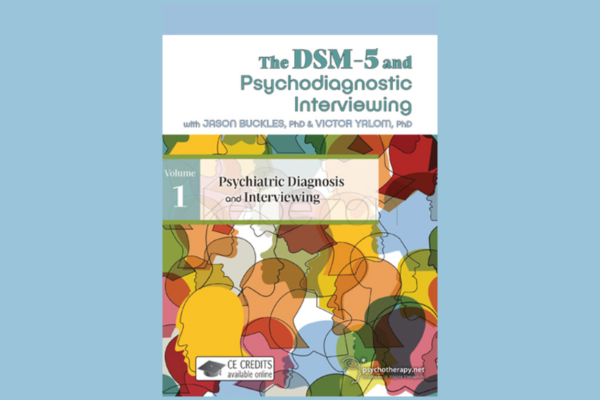

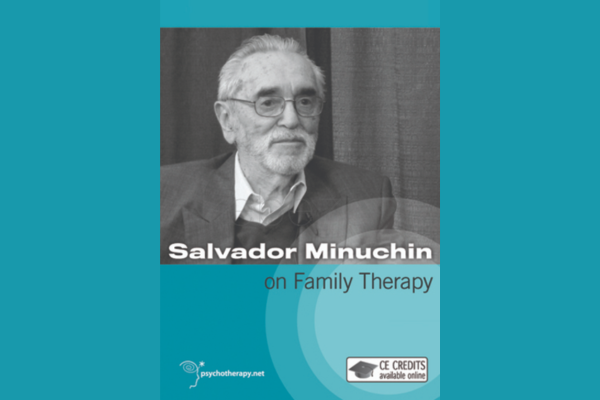


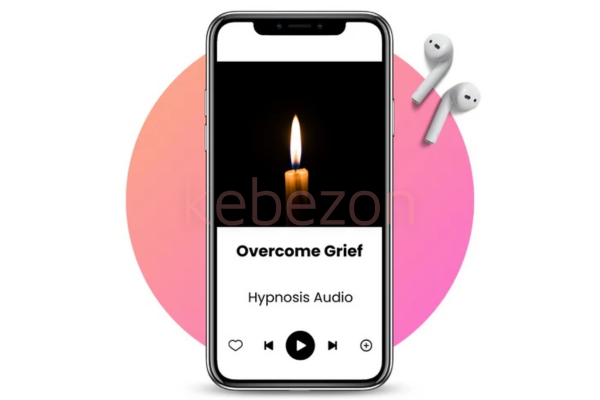
Reviews
There are no reviews yet.